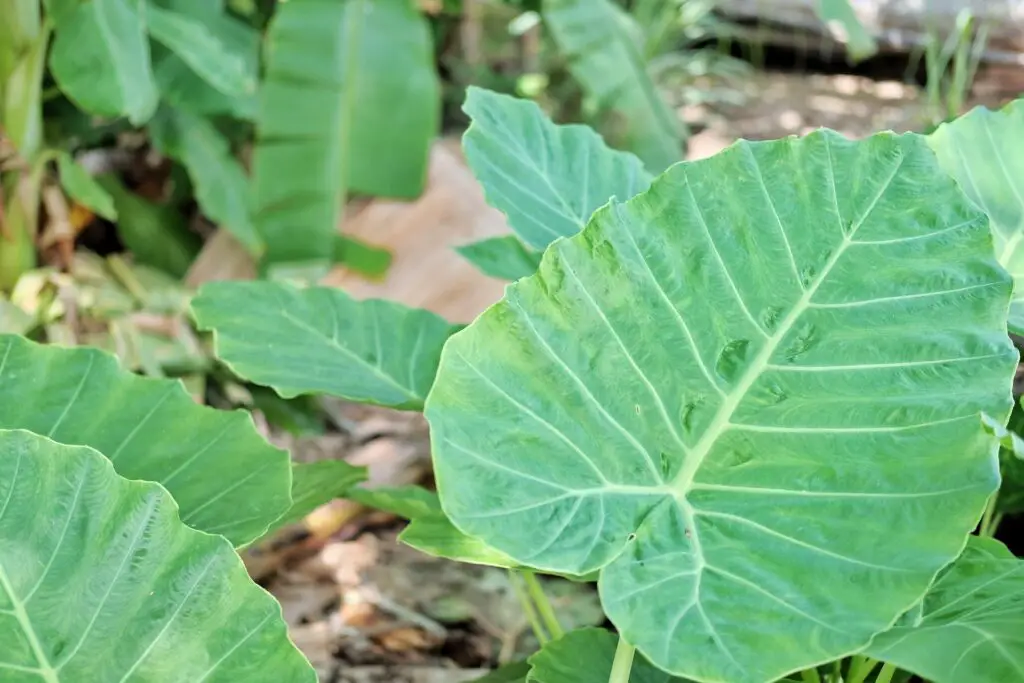Elephant ear plants are a show piece in any garden with their huge green leaves that keep pushing their way up through the ground throughout the entire growing season. They are also very popular because they are resistant to many common garden pests. Deer are a huge problem when it comes to a lot of favorite garden plants, but elephant ear plants are completely deer resistant. This resistance has to do with elephant ear sap – but is it poisonous?
Elephant ear sap can be poisonous to humans and animals if it is ingested, but the toxicity level is low. If ingested, elephant ear sap can cause vomiting, diarrhea, nausea, swelling of the throat, or a burning sensation in the mouth. Contact with elephant ear sap can also cause irritation to the skin causing a rash, itching, swelling, or burning.

What is elephant ear sap?
Elephant ear sap is a milky, white substance secreted by the plant. The elephant ear plant sap contains something called insoluble calcium oxalate crystals. These are needle-like crystals that can embed into skin or GI tract if ingested.
If an animal were to chew on an elephant ear plant, the crystals would be released and cause profuse pain in the mouth. Likewise, if a child were to touch the plant and then rub their eye or put their hands in their mouth, they may experience a burning or tingling sensation in their mouth. The symptoms should be mild, though contact with the eyes can be painful and requires immediate attention.
What parts of the elephant ear plant are poisonous?
The stem and the leaves both have sap that contain the calcium oxalate crystals. Just touching the plant can cause irritation to the skin and eyes if you happen to rub your eyes. Anytime I need to touch the plant or cut dead stems off, I use disposable gloves that I can throw away after.
Poison Control
If you or your child happen to ingest part of an elephant ear or its sap, it is best to call poison control for advice on what to do next.
1-800-222-1222
Animal Poison Control
If your pet ingests part of an elephant ear you may notice them drooling, difficulty swallowing, panting, or vomiting. You should call poison control right away to determine what care they might need.
